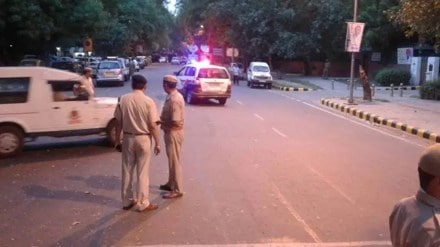Three new criminal laws — Bharatiya Nyaya Sanhita, Bharatiya Nagarik Suraksha Sanhita and the Bharatiya Sakshya Adhiniyam — came into effect nationwide on Monday (July 1). These laws have replaced the colonial-era Indian Penal Code (IPC), Code of Criminal Procedure (CrPC) and the Indian Evidence Act, respectively.
The new criminal laws would bring widespread changes in India’s criminal justice system and end colonial-era laws, however, there has been criticism from several sections that the formulation and implementation of these laws
was “rushed” and “more deliberations should have taken place”.
Opposition leaders have been attacking the government over the new laws saying they were implemented without proper discussion.
Also Read: New criminal laws come into effect as colonial-era IPC, CrPC get replaced
Prakash Singh, former Uttar Pradesh DGP and former director general BSF, said that there inclusion of certain provisions that were earlier not there was “necessary but more was needed to be done.
While talking to Financial Express, Prakash Singh said, “The IPC was functioning very well. It was delivering very well. But if they have overhauled it, we could not take any objection to it. It is good that they have looked into the sections of the IPC and included provisions based on issues that were earlier not there but are necessary in the present times. To some extent it was necessary. It has been dealt with some degree of thoroughness but more was needed to be done.”
“A number of groups, organisations and NGOs, including the Indian Police Foundation with which I am associated, tried to get a hearing with the Parliamentary committee but the committee never gave us a date. I would say the amount of consultation, discussion and talks with different stakeholders, which should have taken place, has unfortunately not happened. Somehow, the formulation of these bills was rushed. There was no need for that hurry. There was no urgency. No crisis. It was not like our legal system was not functioning, of course, it had some drawbacks and limitations, but it was still functioning. Concerning quite a lot of sections in the new laws, some people feel there was a need for more consultation and discussion. That is a shortcoming,” the former UP DGP added.
Also Read: First FIR under new criminal law filed against Delhi street vendor
Home Minister Amit Shah, during the passage of new laws in Parliament, said, “The Sanhitas (bills) represented laws that had been framed by Indians, for Indians. It will be more inclined towards Nyaya (justice) than dand (penal actions)”.
There has been an overwhelming consensus that India’s criminal laws needed updating even if the ‘decolonisation’ narrative is set aside. However, the consultation process for the drafting of laws and their hasty passage has led to some agitation.
The Bharatiya Nyaya Sanhita (BNS) introduces a handful of new crimes. Notable among them is Clause 69, which penalises sexual intercourse through the employment of “deceitful means”.
The BNS for the first time has also included offences such as organised crime and terror, previously in the ambit of specific stringent laws like the Unlawful Activities Prevention Act (UAPA) for terrorism, and state-specific laws such as the Maharashtra Control of Organised Crime Act for organised crime.
Also Read: Zero FIRs, online complaints, electronic summonses: Key highlights of new criminal laws
On being asked about these new provisions, Prakash Singh said, “Terrorism was being dealt with differently in the past as there was no separate clause related to terrorism in the IPC. There was an act called the Unlawful Activities (Prevention) Act, 1967, but it was shy of calling terrorism, by the name of terrorism, and so such activities were called unlawful activities.”
“Before that, acts like TADA (Terrorist and Disruptive Activities (Prevention) Act) and POTA (Prevention of Terrorism Act, 2002) dealt with terrorist activities but were repealed after they encountered a lot of opposition over their ‘draconian provisions’. Now, the government has decided to have a separate section for terrorism offences in Bharatiya Nyaya Sanhita itself,” Singh said.
“However, the point is that terrorism activities are also defined in the UAPA as unlawful activities and now it has a separate section as well, so how will the government reconcile these two sets of provisions running parallelly? That remains to be seen,” he said.
“Meanwhile, if we talk about organised crimes, there was a lot of confusion earlier as there were no specified acts. Only the state of Maharashtra had the Maharashtra Control of Organised Crime Act (MCOCA), 1999. It was a very effective act and several states had enacted similar laws along the lines of MCOCA. Having to depend upon similar provisions like MCOCA was a problem. The new provision against organised crimes in the Bharatiya Nyaya Sanhita will be applicable in all states. To that extent, it is good that organised crime is being recognised as a crime in the new criminal laws.”
According to the new law, organised crime, in Clause 111(1), encompasses “any continuing unlawful activity including kidnapping, robbery, vehicle theft, extortion, land grabbing, contract killing, economic offences, cyber-crimes having severe consequences, trafficking in people, drugs, illicit goods or services and weapons, human trafficking racket for prostitution or ransom.” However, vague descriptions such as “cyber-crimes having severe consequences” will have to be addressed.
